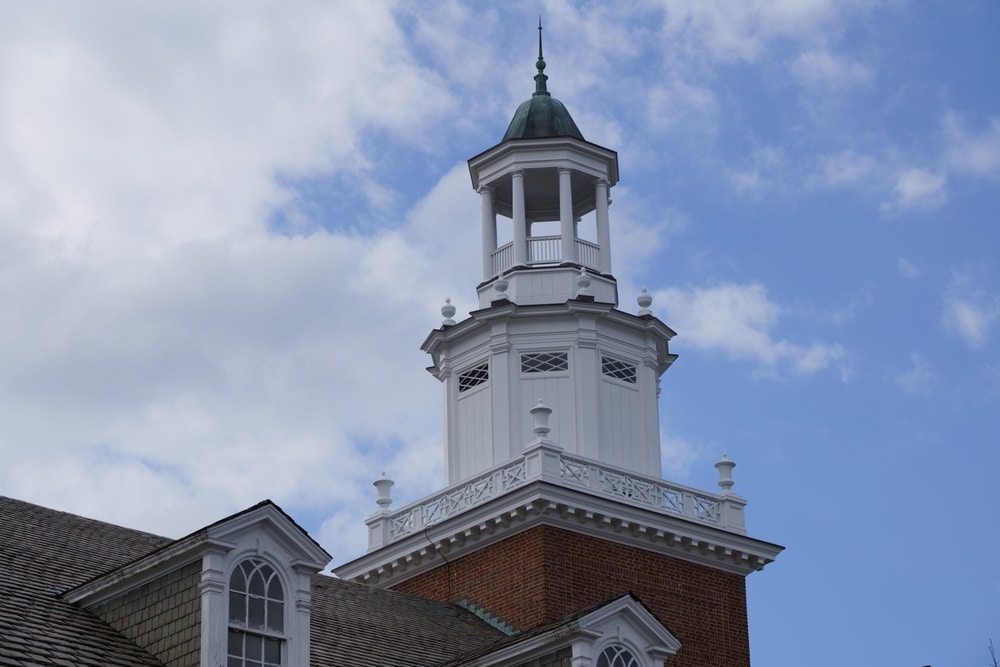Johns Hopkins Early Decision Acceptance Rate
Welcome to our college admissions blog series! Today, we’re focusing on Johns Hopkins University, where your academic ambitions can find an early home. Johns Hopkins University offers an Early Decision admission option with an encouraging acceptance rate of 20%. This article aims to provide you with comprehensive information on the importance of the concept of early decision and the acceptance rate at Johns Hopkins University.
The Concept of Early Decision
Before we delve into the specifics of Johns Hopkins University, it’s important to grasp the concept of early decision. In the realm of university applications, early decision refers to an agreement between the applicant and the university where the student, if admitted, commits to enroll in that institution. The application to an early decision program indicates that that university is the student’s top choice, and they’re willing to commit to it even before hearing back from other universities.
Early decision is a strategic option for students who have a clear vision of their future and are confident in their choice of university. By applying for early decision, students demonstrate their dedication and commitment to their chosen institution. This commitment is highly valued by universities, as it shows that the student has thoroughly researched and considered their options.
Furthermore, early decision allows students to have a head start in the college admissions process. By submitting their application early, students can potentially receive an admission decision sooner than regular applicants. This not only provides a sense of relief from the often stressful waiting period but also allows students to plan the rest of their senior year in high school with certainty.
Benefits of Applying Early Decision
There are several advantages for students who opt for an early decision application. Firstly, it can provide relief from the drawn-out admission process, as decisions are usually given out in December. Thus, students can plan the rest of their senior year in high school with certainty. Moreover, universities tend to accept a higher percentage of students from their early decision applicant pool compared to regular applicants.
When a student applies early decision, they are demonstrating their strong interest and commitment to the university. This level of dedication can make a significant impact on the admissions committee, as it shows that the student has thoroughly researched the institution and is genuinely passionate about attending. Consequently, early decision applicants often have a higher chance of being admitted compared to regular applicants.
Another advantage of applying for early decision is the potential for financial aid benefits. Some universities offer more generous financial aid packages to early decision applicants, as they are more likely to enroll if accepted. This can be a significant advantage for students who require financial assistance to attend their desired university.
Additionally, applying early decision allows students to fully immerse themselves in the university experience. Once admitted, early decision students have the opportunity to connect with their future classmates and engage in pre-enrollment activities. This early integration into the university community can help students transition smoothly into college life and establish a strong support network from the start.
The Significance of Acceptance Rates
When it comes to college admissions, acceptance rates play a significant role in shaping the decisions of both students and institutions. Understanding the calculation of acceptance rates is crucial in making informed decisions about where to apply and what to expect during the admissions process.
How Acceptance Rates are Calculated
The acceptance rate of a university is computed by dividing the total number of admitted students by the total number of applicants. While this calculation may seem straightforward, the process includes a multitude of considerations that can vary from one institution to another.
When evaluating applications, institutions may give preference to specific cohorts or focus on certain criteria. For example, some universities may prioritize applicants from underrepresented communities, while others may prioritize those with exceptional talents or achievements in specific fields.
Furthermore, the calculation of acceptance rates can also be influenced by external factors. For instance, if a university receives a significant increase in applications one year, the acceptance rate may decrease even if the number of admitted students remains the same. This is because the denominator, which represents the total number of applicants, has increased.
Why Acceptance Rates Matter
Acceptance rates are crucial indicators of an institution’s reputation and prestige. Universities with lower acceptance rates are often associated with higher academic standards and selectivity. They are seen as more competitive and exclusive, attracting top-performing students from around the world.
Furthermore, acceptance rates provide insight into the competition level and the likelihood of gaining admittance. For students, understanding the dynamics of acceptance rates can provide a competitive edge during the application process. It allows them to gauge their chances of getting accepted and make more informed decisions about where to apply.
However, it is important to note that acceptance rates should not be the sole determinant of a student’s decision to apply to a particular institution. While a low acceptance rate may indicate a prestigious university, it does not guarantee a better educational experience or fit for every student. Factors such as program offerings, campus culture, location, and financial considerations should also be taken into account.
In conclusion, acceptance rates are an essential aspect of college admissions that can provide valuable insights into an institution’s selectivity and reputation. Understanding how they are calculated and their significance can help students navigate the application process more effectively and make informed decisions about their educational future.
Johns Hopkins University: A Brief Introduction
Johns Hopkins University, established in 1876, is a prestigious institution that has consistently maintained a high standing in the realm of higher education. With a rich history and an established reputation, it is recognized globally for its commitment to innovation, research, and academic rigor. Students from all over the world aspire to be a part of this esteemed university.
When it comes to academic programs, Johns Hopkins University offers a wide variety of undergraduate programs across different disciplines. Whether you are interested in arts, science, engineering, or the humanities, you will find a program that suits your interests and goals. The university’s diverse range of academic pursuits ensures that students have ample opportunities to explore their passions and develop a well-rounded education.
One of the key aspects that sets Johns Hopkins University apart is its unwavering commitment to research. The university is renowned for its groundbreaking studies and provides numerous opportunities for students to engage in research projects. Whether it’s working alongside esteemed faculty members or collaborating with fellow students, the university encourages and supports students in their pursuit of knowledge and discovery.
Moreover, Johns Hopkins University boasts state-of-the-art facilities and resources that enhance the learning experience. From well-equipped laboratories to cutting-edge technology, students have access to everything they need to excel in their academic endeavors. The university’s commitment to providing a conducive environment for learning and research is evident in its continuous investment in infrastructure and resources.
Furthermore, Johns Hopkins University is not just a place for academic growth but also fosters a vibrant and inclusive community. The university offers a wide range of extracurricular activities, clubs, and organizations that cater to diverse interests. Whether it’s joining a sports team, participating in community service, or exploring artistic pursuits, students have ample opportunities to engage in activities beyond the classroom and develop their skills and passions.
As a global institution, Johns Hopkins University attracts a diverse student body from around the world. This diversity enriches the learning experience, fostering a multicultural and inclusive environment where students can learn from one another’s perspectives and experiences. The university’s commitment to diversity and inclusion is reflected in its efforts to create a welcoming and supportive community for all.
Overall, Johns Hopkins University is a renowned institution that offers a world-class education, a commitment to research, state-of-the-art facilities, and a vibrant community. With its rich history and established reputation, it continues to attract students who are passionate about learning and making a difference in the world. Whether you are interested in pursuing a degree in the arts, science, engineering, or the humanities, Johns Hopkins University provides an environment that nurtures intellectual curiosity, fosters personal growth, and prepares students for success in their chosen fields.
Recent Trends in Acceptance Rates
Over the years, Johns Hopkins has seen a surge in applications, which has led to a steady dip in the early decision acceptance rate. This is indicative of the university’s growing reputation as a top-tier institution and the increasing interest among students in pursuing their education at Johns Hopkins.
One possible reason for the surge in applications is the university’s strong academic programs and renowned faculty. Johns Hopkins is known for its excellence in fields such as medicine, engineering, and the sciences, attracting students from all over the world who are eager to learn from the best in their respective fields.
Additionally, the university’s commitment to research and innovation is another factor that contributes to its popularity among prospective students. Johns Hopkins is home to numerous research centers and institutes, providing students with unique opportunities to engage in groundbreaking research and make significant contributions to their fields of study.
Factors Influencing the Acceptance Rate
The Johns Hopkins acceptance rate is contingent upon various factors, from the quality of your application to your academic record, as well as extracurricular achievements. The admission committee takes a holistic approach, where every part of your application is considered carefully to gauge your potential for success at the university.
When reviewing applications, the admission committee looks for students who not only demonstrate academic excellence but also possess a strong passion for their chosen field of study. They seek individuals who have shown a commitment to their community through extracurricular activities, volunteer work, or leadership roles.
Furthermore, the committee takes into consideration the diversity of the applicant pool and aims to create a vibrant and inclusive campus community. They value students who can contribute to the university’s diverse and multicultural environment, bringing unique perspectives and experiences to the table.
It is important to note that the acceptance rate at Johns Hopkins can vary from year to year, depending on the strength of the applicant pool and the university’s enrollment goals. Therefore, while the acceptance rate provides insight into the competitiveness of the admissions process, it should not be the sole determining factor in your decision to apply to Johns Hopkins.
Ultimately, the university seeks to admit students who not only have the potential to succeed academically but also have the drive and motivation to make a positive impact on the world. If you are considering applying to Johns Hopkins, it is crucial to put your best foot forward and showcase your unique qualities and achievements that set you apart from other applicants.
Preparing for Early Decision at Johns Hopkins
Understanding the Application Process
To make your application stand out, a deep understanding of the application process is indispensable. The Johns Hopkins application process is comprehensive, requiring not just academic transcripts and standardized test scores but also personal essays and letters of recommendation. These elements provide a multidimensional perspective of the applicant, allowing the admissions committee to understand you beyond your academic accomplishments.
Tips for a Successful Early Decision Application
A strong early decision application to Johns Hopkins will demonstrate not only academic excellence but also the potential to contribute positively to the campus community. Be sure to highlight your individual strengths, passions, and experiences in your application. Additionally, showing a deep interest and understanding of the university’s programs can reinforce your commitment and suitability for the university.
Undoubtedly, applying to universities, especially through early decision, is a complex process. However, arming yourself with the right knowledge and preparedness can increase your odds of success. Hopefully, this article has provided essential insights to assist in your Johns Hopkins early decision journey.
How AdmissionSight Can Help You With College Admissions
AdmissionSight is a college consulting firm that provides personalized assistance to students throughout the college admissions process. Here are some ways that AdmissionSight can help you:
Admissions strategy: AdmissionSight can help you develop a strategic plan for your college application process. Our professional consultants can assist with identifying schools that are a good fit for your academic, extracurricular, and personal goals and help you plan and prioritize your application strategy.
Application review: AdmissionSight can review your application and provide feedback on how to improve it. We can offer suggestions on making your application stand out and highlighting your strengths and unique qualities.
Essay coaching: AdmissionSight can help you craft compelling essays that showcase your personality, goals, and achievements. We can guide you through the essay writing process and provide feedback on your drafts to help you refine your writing.
Interview preparation: AdmissionSight can provide interview coaching to help you feel confident and prepared for college interviews. Our experts can offer tips on how to present yourself professionally and how to answer common interview questions.
Extracurricular planning: AdmissionSight can help you plan and develop your extracurricular activities to make them more impactful and meaningful. We can suggest activities that align with your interests and goals and provide guidance on demonstrating your leadership and initiative.
Overall, AdmissionSight can provide valuable guidance and support throughout the college admissions process to help you maximize your chances of getting accepted into the college of your choice.
With a high success rate of over 75%, we have built a strong network in the past decade. Book an initial consultation today, free of charge!









































